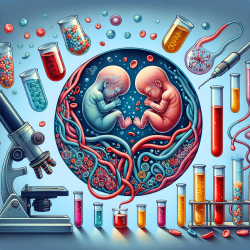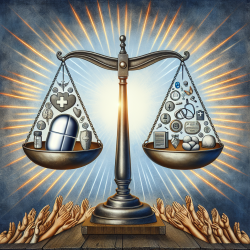The topic of male victims of sexual abuse is often shrouded in silence and stigma. However, recent research titled "Male Victims of Sexual Abuse: Impact and Resilience Processes, a Qualitative Study" sheds light on the profound impact such experiences have on individuals and highlights pathways to resilience. This study offers valuable insights for practitioners aiming to enhance their therapeutic skills and support male survivors more effectively.
The Impact of Sexual Abuse on Male Survivors
The research underscores the multifaceted impact of sexual abuse on male survivors. Participants reported psychiatric implications such as PTSD symptoms, depression, and suicidal thoughts. The trauma also affected their self-esteem, relationships with others, and overall self-fulfillment. Many struggled with feelings of powerlessness and shame, which were exacerbated by societal norms around masculinity.
Sexuality was another area profoundly affected by the abuse. Survivors expressed fears of causing harm or being perceived as threats in intimate relationships. This fear often led to avoidance of relationships altogether. The study also highlighted the challenges survivors faced in forming meaningful connections due to a deep-seated distrust in human relationships.
Resilience Processes: Pathways to Healing
The study identified seven key dimensions of resilience that can inform therapeutic practices:
- Bond to Others: Establishing supportive interpersonal relationships was crucial for resilience. Positive disclosures and support from friends and family played a significant role in helping survivors feel understood and less isolated.
- Bond to the Body: Reconnecting with one's body through practices like meditation, yoga, and mindful breathing helped survivors regain control and confidence.
- Expression: Creative outlets such as writing, art, and music provided survivors with a means to externalize emotions and transform their experiences into something meaningful.
- Making Sense of Things: Understanding the context of their abuse helped survivors integrate their experiences into a coherent narrative, facilitating acceptance and healing.
- Rediscovering Oneself: Self-discovery was essential for rebuilding identity post-trauma. This involved introspection, counseling, and embracing personal values independent of past experiences.
- Institutions: Support from judicial, medico-social, or associative institutions provided social recognition and legitimization of survivors' experiences.
- Learning and Commitment: Engaging in learning about violence mechanisms empowered survivors to develop defense strategies and fostered a sense of purpose through commitment to helping others.
The Role of Practitioners
The findings from this study offer several avenues for practitioners seeking to improve their support for male survivors:
- Create Safe Spaces: Encourage open dialogue about sexual abuse within therapeutic settings to reduce stigma and foster healing.
- Cultivate Empathy: Understand the unique challenges male survivors face due to societal norms around masculinity.
- Pursue Further Research: Engage with ongoing research to stay informed about effective therapeutic strategies for supporting male survivors.
This study emphasizes that resilience is a deeply personal process influenced by various factors. By understanding these dynamics, practitioners can better tailor their approaches to meet the needs of male survivors.
If you're interested in delving deeper into this topic, I encourage you to read the original research paper: Male Victims of Sexual Abuse: Impact and Resilience Processes, a Qualitative Study.










